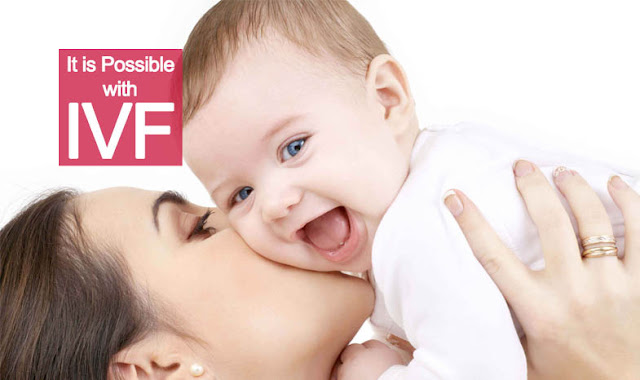Knowing Success and Live Birth Rate of IVF
In
today’s world, IVF treatment is very common among the people. IVF refers to In
Vitro Fertilization. It is an easy procedure in which the eggs are retrieved
from the female ovaries and then are combined in a vitro, with the sperm of a
husband or sperm from donor. When the embryo is formed from that fertilization,
then it is transferred back in to the female uterus for the natural process to
begin. IVF treatment is used by a couple, if they fail to conceive the pregnancy
even after having regular sexual intercourse for a year or more and if no medication
has helped them to conceive.
Success rate of IVF is referred to basically the rates of pregnancy after the
procedure of IVF. The age of the woman play a vital role for the success of IVF
treatment. As the age of the woman increase, the success rate of IVF keep
on decreasing especially after the age of 37. Another factor that helps in evaluating
the success rate is the number of embryo transferred. The success rate of IVF also depends on how many embryos are being transferred
to the female uterus. However, transferring more than one embryo arise the risk
for multiple pregnancies and birth defects, miscarriages, pre mature births,
etc. According to the doctor, not more than two embryos should be transferred
to the uterus in the women under 35 ages, as there is a risk of multiple
pregnancies.
In
the process of IVF, there is a risk of low birth weight or premature birth, due
to the higher risk of multiple pregnancies. According to the research, approximately
30 percent of IVF treatment results in twin, when compare to natural pregnancies.
The success rate of IVF generally
depend o the IVF procedures that provide the beneficial outcome. The confirmed
pregnancies represented by the calculation for the specific outcome are responsible
for the pregnancies success rate in IVF and the number of live birth rate in IVF. Usually, the success rate is affected by
various factor like; infertility cause, age of the woman, status of embryo, function
of reproductive system and lifestyle and environmental aspects.
Mostly
the women under 35 years of age are more likely to get pregnant with the IVF
treatment even with one embryo placed in their uterus. However, the women aged
over 40 years get difficulty in getting pregnant with one embryo implanted in
them. For the success of pregnancy, they need to get implanted more than two embryos
in their uterus and might also get the use of a donor egg. On the other hand,
the women who have conceived a pregnancy before or have given birth to a child
previously are more likely to conceive pregnancy through IVF treatment as
compared to the woman who have never been pregnant before.
According
to the reports, the IVF success rates
have reached higher today as compared to the previous couple of year ago, due
to the development in the advanced reproductive technologies.
There are several factors that affect
the success rate of IVF treatment. Some of them are mentioned below-
·
Experience of the IVF specialist
·
Quality of egg
·
Maturity of the egg
·
Age of the woman
·
Quality of sperm and morphology
·
Abnormalities of chromosomal in the eggs and the sperm
·
Reproductive abnormalities including, endometriosis and
uterine fibroids
Understanding
the live birth rate in IVF-
The
live birth rate in IVF is calculated
by the number of healthy babies born through the IVF procedure which is
undergone when there is an infertility diagnosed in a couple. The women aged less
than 35 year have 24 percent of chance for live birth per cycle, whereas the
women of aged 35 to 39 year have 18 percent chance for live birth cycle and
women of 40 year and above have only 7 percent chance of a live birth per
cycle. If we compare the success rate of pregnancy through IVF with live birth rate in IVF, then we can
find that the live birth rates are lower than the success rate of pregnancy
through IVF.
A
woman who has a well functioned reproductive system and is able to produce eight
fine eggs in her one cycle, can obtain a pregnancy rate of 37percent each
embryo implanting, and a live birth of 25percent at her first attempt in IVF
procedure. The numbers of eggs obtain from ovaries after the ovarian
stimulation also has a great impact in the success of IVF treatment.

Thanks to sharing Indira IVF Group Success and Live Birth Rate best ivf centre in hyderabadi
ReplyDelete